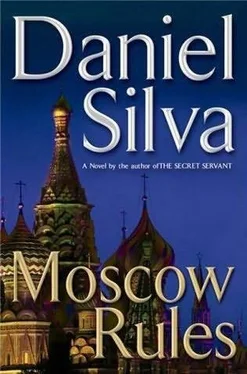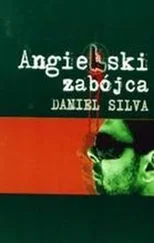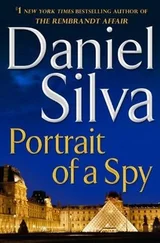During the second week, there were a series of events that clouded the mystery further. The first was the arrival of a tall young woman with riotous auburn hair and eyes the color of caramel. She called herself Francesca, spoke Italian with a pronounced Venetian accent, and proved to be a much-needed breath of fresh air. She rode the horses- “Quite well, actually,” Isabella informed the others-and organized elaborate games involving the goats and the dogs. She secretly permitted Margherita to clean Signore Vianelli’s rooms and even encouraged Anna to cook. Whether they were husband and wife was unclear. Margherita, however, was sure of two things: Signore Vianelli and Francesca were sharing the same bed, and his mood had improved dramatically since her arrival.
And then there were the delivery trucks. The first dispensed a white table of the sort found in professional laboratories; the second, a large microscope with a retractable arm. Then came a pair of lamps that, when switched on, made the entire villa glow with an intense white light. Then it was a case of chemicals that, when opened, made Margherita feel faint from the stench. Other parcels arrived in rapid succession: two large easels of varnished oak from Venice, a strange-looking magnifying visor, bundles of cotton wool, woodworking tools, dowels, brushes, professional-grade glue, and several dozen vessels of pigment.
Finally, three weeks after Signore Vianelli’s arrival in Umbria, a dark green panel van eased its way slowly up the tree-lined drive, followed by an official-looking Lancia sedan. The two vehicles had no markings, but their distinct SCV license plates spoke of links to the Holy See. From the back of the van emerged a vast, ghastly painting depicting a man being disemboweled. It was soon propped on the two large easels in Count Gasparri’s drawing room.
Isabella, who had studied art history before devoting her life to horses, recognized the canvas immediately as Martyrdom of St. Erasmus by the French painter Nicolas Poussin. Rendered in the style of Caravaggio, it had been commissioned by the Vatican in 1628 and resided now in the Pinacoteca at the Vatican Museums. That evening, at the staff dinner, she announced that the mystery was solved. Signore Alessio Vianelli was a famous art restorer. And he had been retained by the Vatican to save a painting.
His days took on a distinctly monastic rhythm. He toiled from dawn till midday, slept through the heat of the afternoon, then worked again from dusk until dinner. For the first week, the painting remained on the worktable, where he examined the surface with the microscope, made a series of detailed photographs, and performed structural reinforcements on the canvas and stretcher. Then he transferred the canvas to the easels and began removing the surface grime and yellowed varnish. It was a markedly tedious task. First he would fashion a swab, using a blob of cotton wool and a wooden dowel; then he would dip the swab in solvent and twirl it over the surface of the painting- gently , Isabella explained to the others, so as not to cause any additional flaking of the paint. Each swab could clean about a square inch of the painting. When it became too soiled to use any longer, he would drop it on the floor at his feet and start the process over again. Margherita likened it to cleaning the entire villa with a toothbrush. “No wonder he’s so peculiar,” she said. “His work drives him mad.”
When he finished removing the old varnish, he covered the canvas in a coat of isolating varnish and began the final phase of the restoration, retouching those portions of the painting that had been lost to time and stress. So perfect was his mimicry of Poussin that it was impossible to tell where the painter’s work ended and his began. He even added faux craquelure, the fine webbing of surface cracks, so that the new faded flawlessly into the old. Isabella knew enough of the Italian art community to realize Signore Vianelli was no ordinary restorer. He was special, she thought. It was no wonder the men of the Vatican had entrusted him with their masterpiece.
But why was he working here at an isolated farm in the hills of Umbria instead of the state-of-the-art conservation labs at the Vatican? She was pondering this question, on a brilliant afternoon in early June, when she saw the restorer’s car speeding down the tree-lined drive. He gave her a curt, soldierly wave as he went hurtling past the stables, then disappeared behind a cloud of pale gray dust. Isabella spent the remainder of the afternoon wrestling with a new question. Why, after remaining a prisoner of the villa for five weeks, was he suddenly leaving for the first time? Though she would never know it, the restorer had been summoned by other masters. As for the Poussin, he would never touch it again.
Few Italian cities handle the crush of summer tourists more gracefully than Assisi. The packaged pilgrims arrive in mid-morning and shuffle politely through the sacred streets until dusk, when they are herded once more onto air-conditioned coaches and whisked back to their discount hotels in Rome. Propped against the western ramparts of the city, the restorer watched a group of overfed German stragglers tramp wearily through the stone archway of the Porto Nuova. Then he walked over to a newspaper kiosk and bought a day-old copy of the International Herald Tribune . The purchase, like his visit to Assisi, was professional in nature. The Herald Tribune meant his tail was clean. Had he purchased La Repubblica , or any other Italian-language paper, it would have signified that he had been followed by agents of the Italian security service, and the meeting would have been called off.
He tucked the newspaper beneath his arm, with the banner facing out, and walked along the Corso Mazzini to the Piazza del Commune. At the edge of a fountain sat a girl in faded blue jeans and a gauzy cotton top. She pushed her sunglasses onto her forehead and peered across the square toward the entrance of the Via Portica. The restorer dropped the paper into a rubbish bin and set off down the narrow street.
The restaurant where he had been instructed to come was about a hundred yards from the Basilica di San Francesco. He told the hostess he was meeting a man called Monsieur Laffont and was immediately shown onto a narrow terrace with sweeping views of the Tiber River valley. At the end of the terrace, reached by a flight of narrow stone steps, was a small patio with a single private table. Potted geraniums stood along the edge of the balustrade and overhead stretched a canopy of flowering vines. Seated before an open bottle of white wine was a man with cropped strawberry blond hair and the heavy shoulders of a wrestler. Laffont was only a work name. His real name was Uzi Navot, and he held a senior post in the secret intelligence service of the State of Israel. He was also one of the few people in the world who knew that the Italian art restorer known as Alessio Vianelli was actually an Israeli from the Valley of Jezreel named Gabriel Allon.
“Nice table,” said Gabriel as he took his seat.
“It’s one of the fringe benefits of this life. We know all the best tables in all the best restaurants in Europe.”
Gabriel poured himself a glass of wine and nodded slowly. They did know all the best restaurants, but they also knew all the dreary airport lounges, all the stinking rail platforms, and all the moth-eaten transit hotels. The supposedly glamorous life of an Israeli intelligence agent was actually one of near-constant travel and mind-numbing boredom broken by brief interludes of sheer terror. Gabriel Allon had endured more such interludes than most agents. By association, so had Uzi Navot.
“I used to bring one of my sources here,” Navot said. “A Syrian who worked for the state-run pharmaceutical company. His job was to secure supplies of chemicals and equipment from European manufacturers. That was just a cover, of course. He was really working on behalf of Syria ’s chemical and biological weapons program. We met here twice. I’d give him a suitcase filled with money and three bottles of this delicious Umbrian sauvignon blanc and he’d tell me the regime’s darkest secrets. Headquarters used to complain bitterly about the size of the checks.” Navot smiled and shook his head slowly. “Those idiots in the Banking section would hand me a briefcase containing a hundred thousand dollars without a second thought, but if I exceeded my meal allowance by so much as a shekel, the heavens would open up. Such is the life of an accountant at King Saul Boulevard.”
Читать дальше












